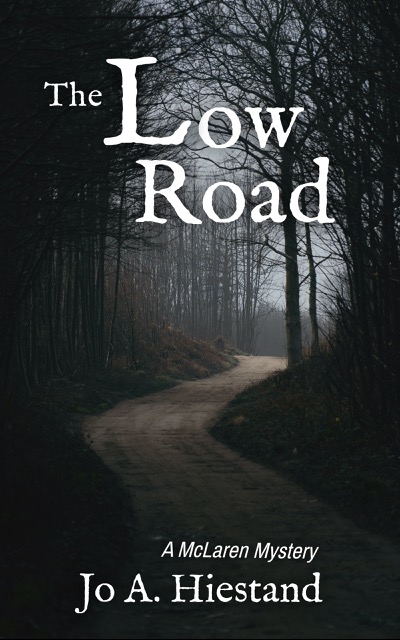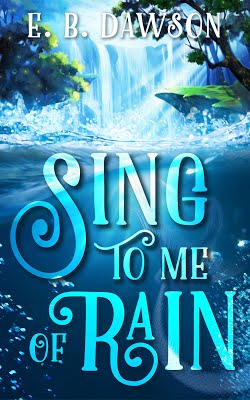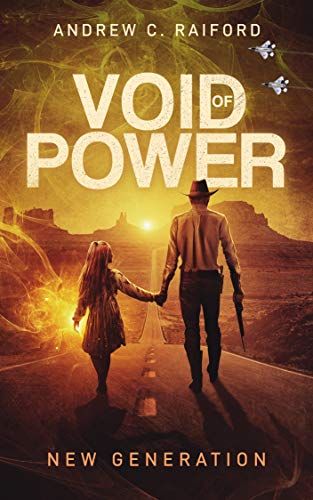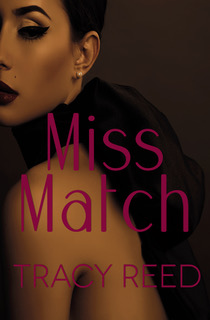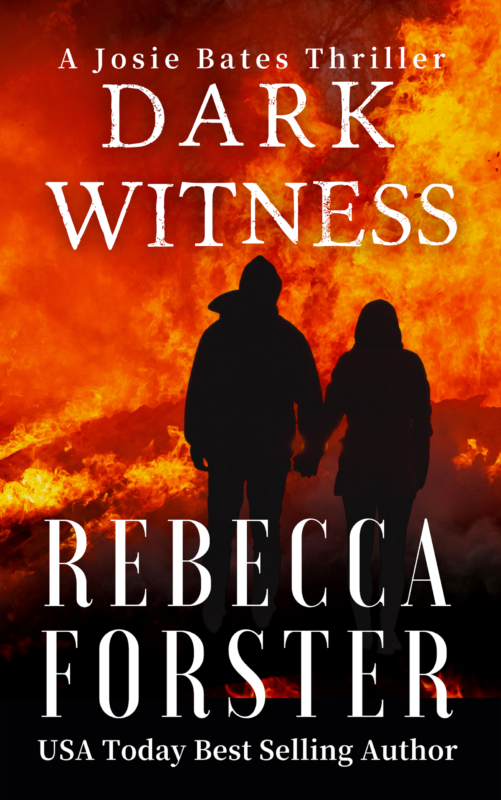Smart Alec (Syndrome)
October 15, 2013 by A Slice of Orange in category Archives tagged as advice, Craft, language, procedurals
 |
| Ingrid Bergman/Gaslight |
- · Procedural (police, medical, legal, etc.)
- · Historical
- · Literary
- · Foreign words and phrases
- · Insider references
- · Acronyms
- · Historical, legal, medical references
- · Rare, anachronistic, and/or exotic words
- · Use opposing dialogue for explanation and definition. This may be accomplished through agreement, amusement, derision, etc.
- · Use the omniscient voice to explain and explore a concept
- · Find another way to explain the word or references that retains the integrity of your work
- · Choose the vernacular but craft a sentence that reflects the tonal uniqueness of the original choice
0 0 Read more
Why I wrote Naked Sushi by Jina Bacarr
October 11, 2013 by A Slice of Orange in category Archives tagged as computer programmer, Cosmo, Cosmopolitan, erotic, erotic romance, espionage, Harlequin, hottie, Instagram, naked, Red-Hot Reads, sexy, spy, sushi, video, VineI’ve always been a geek.
I got my first computer when the screen was black and the print orange. I was a member of an infamous BBS (bulletin board system) back in the day when I wrote a column for a computer magazine called “Sweet Savage Byte.”
I did podcasts on a video camera with a floppy disk that only allowed you to record a minute of time. I remember setting this up in a Borders bookstore in Hollywood. Yes, those were the days…
I’m also a huge James Bond fan.
And I love Covert Affairs with the fab heroine Annie Walker.
You put all that together and you get…Naked Sushi.
It’s also a story about facing the fear of rejection. We’ve all been there. Often that’s the reason we don’t finish a manuscript because we’re afraid of rejection. In Naked Sushi, Pepper O’Malley realizes with the help of the hero that’s what is keeping her from achieving her dream of becoming a spy. She poses as a naked sushi model to get the goods on her sleazy ex-boss with the hero FBI hottie getting in on the action in this excerpt from Naked Sushi.
Six days days until Naked Sushi, my Cosmo Red-Hot Read from Harlequin, is released! So here are two videos with an excerpt from my story. What’s wild is that we’ve gone from 60 seconds max in the early days of video to 6 seconds on Vine and 16 seconds on Instagram…
What’s fun is that the Vine video loops forever and you can take your time reading the sexy snippet. I found some hot music that adds to the fun atmos.
Pepper hits the digital stores on October 15th.
PS — the silky border that I used as a frame around my videos is a remnant from ornate kimono designed by a designer I met when I was taking kimono lessons from a Japanese sensei
Coming on October 15, 2013 from Cosmo Red-Hot Reads from Harlequin:
0 0 Read moreNAKED SUSHI is available for pre-order on Amazon!
Text Copyright © 2013 by Jina BacarrCover Art Copyright © 2013 by Harlequin Enterprises LimitedPermission to reproduce text granted by Harlequin Books S.A. Cover art used by arrangement with Harlequin Enterprises Limited. All rights reserved.® and â„¢ are trademarks owned by Harlequin Enterprises Limited or its affiliated companies, used under license. by Harlequin Enterprises Limited or its affiliated companies, used under license.â€Music:He’s So SexyDream Valley MusicComposer: Michael Stephen Decker Publisher: Shockwave-Sound.Com
Continuity Counts – Updating a Short Story to Match a Novel by Kitty Bucholtz
October 9, 2013 by A Slice of Orange in category Archives tagged as It's Worth It, Kitty Bucholtz, Romancing the Pages, self-publishing, short story, Superhero in Disguise, Unexpected Superhero
When I worked in the film industry, I once had the happy job of assisting the script supervisor for a few days. As a writer, I found it fun and interesting to see what went into making sure we ended up with hundreds of little pieces of film that could be edited into a continuous story that made sense. Especially fascinating when you consider that you shoot scenes completely out of order.
With that in mind, I tried to make sure that my novel Unexpected Superhero (published in May) didn’t contradict anything I wrote in the short story “Hero in Disguise” (published last September in our Romancing the Pages anthology). Even with all of my notes and highlights, it seemed to me that there were still a few things that wouldn’t make quite as much sense as I intended (grin!) if you read the two stories back to back.
I’m publishing the short story myself next Tuesday (Oct 15) as an ebook. When I read it over again, I knew I wanted to make some changes. For one thing, I’d decided that all of the titles for the stories in the Adventures of Lewis and Clarke series would have the word “superhero” in them. So the new title is “Superhero in Disguise.”
But more than that, I wanted the tone to match better. We put together Romancing the Pages as a romance anthology, and my short story matched that tone when I wrote it. But the overarching series story in my head is definitely more humorous urban fantasy. So I went through the short and made changes with that in mind.
As I did so, I was pretty sure I was finding some inconsistencies in how Tori, the main character, perceived her unusual abilities. The short is going to be permanently free as a promotion for the series, so I was hypersensitive to the fact that someone could conceivably read the short and immediately buy and read the novel.
It took a few days and a lot of sticky notes, but I think I managed to smooth it all out. (I hope so! LOL!) I’m trying out a new cover style to see how readers react. It may take some time to find the best way to present this series in terms of book covers, but I’m finally beginning to relax about that.
One of the things I’m beginning to appreciate about self-publishing is not only how I can learn to be flexible and make changes when things don’t seem to be working as well as I’d expect, but also how that mindset is influencing the rest of my life. While I’m in an incredibly stressful situation in life right now, I’m noticing that I’m calmer and looking for alternative solutions every time something doesn’t work out.
It’s nice when you can find that growing in one area of your life can provoke growth in other areas, too!
Kitty Bucholtz decided to combine her undergraduate degree in business, her years of experience in accounting and finance, and her graduate degree in creative writing to become a writer-turned-independent-publisher. Her first novel, Little Miss Lovesick, came out in 2011. Her new novel, Unexpected Superhero, book one in The Adventures of Lewis & Clarke humorous urban fantasy series, is now available in print and ebook format. Love at the Fluff and Fold, book one in The Strays of Loon Lake romantic comedy series, will be released later this year. Her short stories can be found in the anthologies Romancing the Pages and Moonlit Encounters, available in both print and ebook formats.
0 0 Read moreGreatest Asset=Greatest Liability
September 24, 2013 by A Slice of Orange in category ArchivesWell, I have a theory that every one’s greatest asset is also, conversely, their greatest liability. Think about it—it’s just the flip side of the same coin. The dark side. Too much of a good thing.
It’s one of the reasons we can’t get rid of our weakness—because they are part of what is best about us.
You are thinking, no, actually, that’s not true. But that’s just because you haven’t really thought about it. So pause for a minute and work with me here.
What do you think is one of your best qualities? Something that you are simply better at than most people around. It isn’t necessarily anything specific (your great tennis backhand, for example) but something more broad. An ability, a power. I think that like a Pokémon character, we all have both specific abilities and also hidden abilities. And that as we mature, we go through many steps to accomplish cycles and become (hopefully) better defended, more powerful, with greater capacity to succeed.
So in terms of your abilities, or hidden abilities, (for example) perhaps you are remarkably bright and have an analytical and mathematical mind and are gifted with the ability to assess numerous data points and crunch remarkable amounts of information?
Maybe you have an intense desire to find the best answer, to be great—not just good, to succeed at the highest level, never settle?
Or you are a “doer,” action-oriented, goal-focused, get it done and plow through all obstacles?
Possibly your strength is in the ability to intuit others’ perspectives and you can access ways to interpret and inspire others, creating paths of communication and understanding between different personalities, businesses, perspectives, cultures.
But for each of those remarkable gift, there is a challenge, a weakness, a dark side.
For the analytically gifted who offer a deep understanding of issues in all their complexity, sifting all the information in the universe can be very time consuming. It is sometimes hard to stop analyzing, make a determination and move forward. There is always more to assess. There are always downsides and risks to be considered. Finding why you can’t do something can sometimes overwhelm the goal of figuring out how you can.
The aspirational vision of the perfectionist demands a higher level of performance, often inspiring step-out accomplishments, demonstrating we can successfully stretch beyond our assumed limits. But it too can be time consuming, demanding, never satisfied, and that can burn people out and create a sense of ongoing failure in always reaching for the next step, crushing excitement and delight.
A “doer” (often 180 degrees from an analyzer) creates powerful energy with their goal focus and ‘can-do’ attitude. But doers can forget to listen, can overwhelm sometimes valid concerns and objections, and can lose the support and buy-in of the team, becoming a dictator rather than a leader.
Intuition can cause those with the gift of that special knowledge to intermediate themselves overmuch between conflicted parties, and be overwhelmed in working to find a common ground. In trying to please all, they may please none—and be resented for their efforts.
So your greatest asset can also be your greatest liability.
But remember, too, that your greatest weakness also can also be a powerful strength!
Oblivious and inconsiderate? You may cheerfully march to your own drum and break new ground for those limited by their fear of what others will think.
Outspoken and obnoxious? You could be a lighting rod, articulating issues others are afraid to voice—and you will have the strength to brush off the criticism and the challenging headwinds you may face.
Quiet and withdrawn? You may see more than others, gain insights, see patterns, and find better pathways to a solution than the loud speakers.
Finding the balance—which is constantly shifting in response to the context—it the challenge and the key.
I don’t know how to surf, but that is my visual and my metaphor.
0 0 Read moreLISTEN UP: The Making of an Audio Book
September 15, 2013 by A Slice of Orange in category Archives tagged as audio, audio books, create
Affiliate Links
A Slice of Orange is an affiliate with some of the booksellers listed on this website, including Barnes & Nobel, Books A Million, iBooks, Kobo, and Smashwords. This means A Slice of Orange may earn a small advertising fee from sales made through the links used on this website. There are reminders of these affiliate links on the pages for individual books.
Search A Slice of Orange
Find a Column
Archives
Featured Books
SING TO ME OF RAIN
An innocent naiad. A wounded boy. An adventure that will change their lives forever.
More info →MISS MATCH
What happens when the matchmaker inadvertently gets matched while matching someone else?
More info →DARK WITNESS
In a remote wilderness, a girl's life hangs in the balance. Josie Bates knows only one law can save her: survival of the fittest.
More info →Newsletter
Contributing Authors
Search A Slice of Orange
Find a Column
Archives
Authors in the Bookstore
- A. E. Decker
- A. J. Scudiere
- A.J. Sidransky
- Abby Collette
- Alanna Lucus
- Albert Marrin
- Alice Duncan
- Alina K. Field
- Alison Green Myers
- Andi Lawrencovna
- Andrew C Raiford
- Angela Pryce
- Aviva Vaughn
- Barbara Ankrum
- Bethlehem Writers Group, LLC
- Carol L. Wright
- Celeste Barclay
- Christina Alexandra
- Christopher D. Ochs
- Claire Davon
- Claire Naden
- Courtnee Turner Hoyle
- Courtney Annicchiarico
- D. Lieber
- Daniel V. Meier Jr.
- Debra Dixon
- Debra H. Goldstein
- Debra Holland
- Dee Ann Palmer
- Denise M. Colby
- Diane Benefiel
- Diane Sismour
- Dianna Sinovic
- DT Krippene
- E.B. Dawson
- Emilie Dallaire
- Emily Brightwell
- Emily PW Murphy
- Fae Rowen
- Faith L. Justice
- Frances Amati
- Geralyn Corcillo
- Glynnis Campbell
- Greg Jolley
- H. O. Charles
- Jaclyn Roché
- Jacqueline Diamond
- Janet Lynn and Will Zeilinger
- Jaya Mehta
- Jeff Baird
- Jenna Barwin
- Jenne Kern
- Jennifer D. Bokal
- Jennifer Lyon
- Jerome W. McFadden
- Jill Piscitello
- Jina Bacarr
- Jo A. Hiestand
- Jodi Bogert
- Jolina Petersheim
- Jonathan Maberry
- Joy Allyson
- Judy Duarte
- Justin Murphy
- Justine Davis
- Kat Martin
- Kidd Wadsworth
- Kitty Bucholtz
- Kristy Tate
- Larry Deibert
- Larry Hamilton
- Laura Drake
- Laurie Stevens
- Leslie Knowles
- Li-Ying Lundquist
- Linda Carroll-Bradd
- Linda Lappin
- Linda McLaughlin
- Linda O. Johnston
- Lisa Preston
- Lolo Paige
- Loran Holt
- Lynette M. Burrows
- Lyssa Kay Adams
- Madeline Ash
- Margarita Engle
- Marguerite Quantaine
- Marianne H. Donley
- Mary Castillo
- Maureen Klovers
- Megan Haskell
- Melanie Waterbury
- Melisa Rivero
- Melissa Chambers
- Melodie Winawer
- Meriam Wilhelm
- Mikel J. Wilson
- Mindy Neff
- Monica McCabe
- Nancy Brashear
- Neetu Malik
- Nikki Prince
- Once Upon Anthologies
- Paula Gail Benson
- Penny Reid
- Peter Barbour
- Priscilla Oliveras
- R. H. Kohno
- Rachel Hailey
- Ralph Hieb
- Ramcy Diek
- Ransom Stephens
- Rebecca Forster
- Renae Wrich
- Roxy Matthews
- Ryder Hunte Clancy
- Sally Paradysz
- Sheila Colón-Bagley
- Simone de Muñoz
- Sophie Barnes
- Susan Kaye Quinn
- Susan Lynn Meyer
- Susan Squires
- T. D. Fox
- Tara C. Allred
- Tara Lain
- Tari Lynn Jewett
- Terri Osburn
- Tracy Reed
- Vera Jane Cook
- Vicki Crum
- Writing Something Romantic
Affiliate Links
A Slice of Orange is an affiliate with some of the booksellers listed on this website, including Barnes & Nobel, Books A Million, iBooks, Kobo, and Smashwords. This means A Slice of Orange may earn a small advertising fee from sales made through the links used on this website. There are reminders of these affiliate links on the pages for individual books.




